news
Breaking : Oil marketers demand N700 to N850/litre of diesel from Dangote refinery, as product produce locally in Nigeria
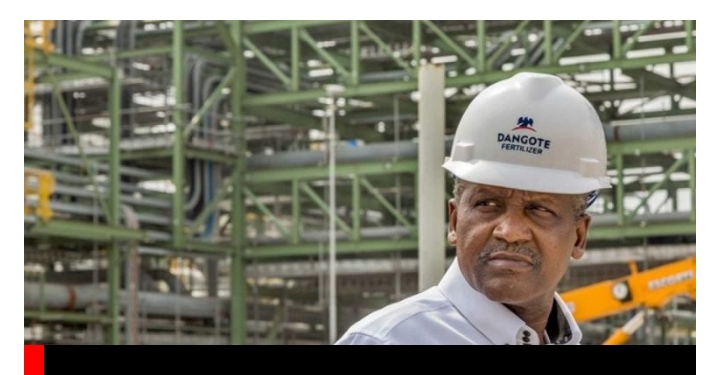
 Oil marketers have called for a downward review in the pump price of the Automotive Gas Oil, popularly called diesel, being produced by the Dangote Petroleum Refinery to between N700 and N850/litre, as operators plan to meet managers of the refinery next week.
Oil marketers have called for a downward review in the pump price of the Automotive Gas Oil, popularly called diesel, being produced by the Dangote Petroleum Refinery to between N700 and N850/litre, as operators plan to meet managers of the refinery next week.
The largest downstream marketing association, the Independent Petroleum Marketers Association of Nigeria, which made the call in an interview with The correspondent,said the N1,225/litre diesel price from the indigenous refinery was high because the commodity was produced in Nigeria and not imported.
The Petroleum Products Retail Outlets Owners Association of Nigeria also called for a reduction in the price of Dangote diesel.
The groups called for the intervention of the Federal Government and urged the managers of the refinery to consider the high cost of logistics required to transport the product from Lagos where the refinery is located.
The oil marketers pointed out that the product is being landed in Nigeria by some importers at N1,250/litre following the appreciation of the naira against the dollar, adding that this should be another reason why the Dangote refinery that produces diesel in Nigeria should cut down its price.
According to the oil marketers, diesel produced at the Dangote refinery has no vessel cost, import charges, and other costs associated with the costs associated with the importation of the commodity into Nigeria.
This came as it was gathered that the marketers under the aegis of IPMAN and Independent Petroleum Marketers Association of Nigeria, and PETROAN held separate meetings on Monday to deliberate on the pricing of petroleum products from the refinery, as well as other issues.
The $20bn refinery started pumping out diesel to the domestic market the previous Wednesday (March 27, 2024).
The report stated that the refinery sold a minimum of one million litres to each registered oil marketer that got the product from the plant since it commenced diesel sale.
Officials of the multi-billion dollar plant and oil dealers had confirmed that the product was dispensed to marketers at between N1,225/litre and N1,300/litre depending on the volume of purchase.
Reacting to the cost of the commodity during an interview with our correspondent on Monday, the National Public Relations Officer, IPMAN, Chief Chinedu Ukadike, commended the refinery for the commencement in the release of refined products.
He, however, urged the managers of the plant to review the cost of the product downward, providing reasons why the price of Dangote diesel should be cheaper than what was imported.
Ukadike said, “During the construction of the Dangote refinery, we supported and welcomed it. Also, it was our prayers that an indigenous refinery be opened so that it will limit the expenses of logistics in terms of importation, clearing, and other activities associated with bringing products into the country.
“These are some of the hurdles that necessitated the high cost of AGO or diesel being imported into Nigeria. So now that a private refinery with a very high capacity has started producing petroleum products here in Nigeria, we would have appreciated that its products being sold to Nigerians will be cheaper than the landing cost of imported products.
“The dollar is currently about N1,270 to N1,290 and it is coming down. So if the dollar is a determinant factor in terms of the importation of petroleum products and diesel is sold by those companies that imported at N1,300/$, I believe that Dangote refinery should not measure the price of its diesel with the parameter of the forex.”
The IPMAN PRO stated that forex should not be the benchmark for the price of Dangote refinery’s diesel.
“Also, some other expenses on the cost of diesel produced by the refinery have been waived. So those expenses should reflect on the price of the product. The refinery is in Lagos, so there is no vessel voyage cost and this should be deducted from the price Dangote is giving us.
“Other marketers who imported their products are landing it at between N1,200 and N1,250/litre since the drop in forex. So Dangote should be giving us his product at around N700 to N850/litre since he is producing it here.
“When we buy at that price, it will further strengthen the naira, minimise profiteering and reduce the cost of goods and services that are transported using diesel. If you minus the cost spent on vessels, importation charges, and the cost of foreign exchange to some extent, the price of diesel will drop,” Ukadike stated.
He said oil marketers would also submit their price request to the Dangote refinery next week, adding that IPMAN would seek the intervention of the Federal Government on the matter.
“We are trying to seek a meeting with the refinery’s commercial department. I just came out of a meeting to speak with you, where we are discussing how to be able to persuade them to review their prices and also ask the government to intervene,” he said.
When asked to state when the association would meet with the refinery, Ukadike replied. “By next week we should get an appointment. That should be after the Sallah.” some
members of IPMAN had started purchasing the product from the refinery at the N1,225/litre price, though the association had stated that it would seek its price from the managers of the refinery.
“They started pumping out diesel to marketers last week. They also promised to sell aviation fuel soon. Some of my members confirmed this to me after making the purchase,” the National President, the Independent Petroleum Marketers Association of Nigeria, Abubakar Maigandi, had told our correspondent last week.
He added, “So some of our marketers have started getting the product, but as an association, we have not got the product yet, because we want to get the actual rate that it will be sold to us when we buy in bulk. However, they have started selling diesel because some of our marketers have started buying.
“They are selling at N1,225/litre and the minimum volume they are giving is one million litres per marketer. Also, they assured us that they will release more products, but for now this (diesel) is what they are starting with. So we are expecting them to release PMS anytime from now.”
Maigandi had said the move by Dangote would definitely lead to a crash in diesel price, as the commodity rose to a high of about N1,700/litre recently.
“The price of diesel is going to fall because of the release of products from Dangote refinery. It is already coming down in Lagos,” Maigandi stated.
Another oil marketer, who is the Chief Executive, AF Ralph Oil and Gas Ventures, Dr Ralph Arokoyo, had also confirmed that the refinery started the sale of diesel to dealers, adding that the plant started dispensing the product about two weeks ago.
Asked if the Dangote refinery had started supplying diesel to the market, Arokoyo replied, “Yes they have started. They started diesel sales last Wednesday and they have sold to many marketers including members of IPMAN and MEMAN (Major Energy Marketers Association of Nigeria), as well as other private registered independent dealers.”
The President, the Petroleum Products Retail Outlets Owners Association of Nigeria, Billis Gillis-Harry, also stated on Monday that the cost of diesel from the Dangote refinery should be reduced.
He said, “PETROAN has an agreement with Dangote to supply to us at N1,200, but we will still request a downward review. We have over 19,000 members and over 6,800 people are active and ready to do business. So we need to talk about so many issues.
“First of all, the logistics from Lagos to Port Harcourt, Calabar, Warri, Zamfara, and other locations is not very easy. So those in Lagos can take the N1,200/litre price because their cost of logistics is low, but this is not so for dealers outside Lagos.
“So we will certainly still engage with them on how prices will come down. However, the good news is that they have rolled out products and we salute and congratulate them, especially the Executive Director, Commercial, Mr Rabiu Umar, for his courage in making sure Nigeria is wet with refined products.”
Gillis-Harry, however, stated that the refinery would have to recoup the funds used in constructing it, as several billions of dollars were borrowed to develop the plant.
Cautious optimism among manufacturers as Dangote begins diesel sale
Diesel price drops as Dangote sells N1,225/litre, supplies petrol May
“The refinery has collected billions of dollars as loans to put itself up. It must start to work to pay back these loans. And the only way to get back this money is by producing and selling, as well as exporting.
“Now he has started with domestic sales. So organisations like ours will have to sit down with them and work out the details and this will enable us to know exactly what their cost elements are. We want to sell and they want to produce,” he stated.
The PETROAN president said his association would not want to speak on the proposed cost of petrol that should come from the Dangote refinery until the plant starts producing the commodity for the domestic market.
“You can’t even talk about price when they’ve not started producing. Yes, they have discussed with PETROAN that they would produce PMS, but they have not started producing,” he said.
When told that the refinery was working to release PMS in May, Gillis-Harry said, “They’ve not started producing. So we won’t work on projections. Let them produce first and we will then know what their input, output, and pricing are. That is the only time we can talk about what prices they should sell.
“Dangote refinery has informed PETROAN that they will produce PMS but we await their production, and then we will know the inputs of their production before we talk about the pricing. We can’t tell them what to sell now.”
Officials of the multibillion-dollar refinery decided to stay mute despite several attempts to get their input on the matter.
However, a senior official at the Dangote refinery confirmed last week that the plant had started the sale of diesel to marketers, as the source noted that Premium Motor Spirit, popularly called petrol, would soon be released to the market.
“The product (diesel) is everywhere and they (marketers) are accessing it with ease. The product has been on sale to marketers since last week and the transactions have been better.
“The price of the product in various locations of the country will come down, and it is already coming down in many parts of Lagos since we started releasing products to marketers,” the official, who spoke on condition of anonymity due to lack of authorisation to speak on the matter, had stated.
The Dangote refinery has faced a series of hurdles as it strives to release refined products into the market after it was officially inaugurated by former President Muhammadu Buhari in May last year.
On February 8, 2024, our correspondent reported that indications emerged that lingering regulatory approvals stalled Dangote Petrochemical Refinery’s plan to release aviation fuel (Jet A1) and diesel for sale in the Nigerian market in January.
The report stated that weeks after the January 31 timeline set by the management of Africa’s largest refinery to begin the sale of its petroleum product in the local market, the refinery was still battling to cross the hurdles of the several layers of regulatory approvals.
It stated that the development came after the refinery began the production of refined petroleum products at the expansive facility.
On January 12, 2024, Dangote refinery announced that it had commenced the production of Automotive Gas Oil, popularly called diesel, and aviation fuel or JetA1.
Aliko Dangote, in a statement issued by his firm at the time, thanked President Bola Tinubu for his support, encouragement, and thoughtful advice towards the actualisation of the project.
Dangote also thanked the Nigerian National Petroleum Company Limited, Nigerian Upstream Petroleum Regulatory Commission, NMDPRA, and Nigerians for their support and belief in the historic project, as he revealed that the facility would pump out diesel and aviation fuel in January, subject to regulatory approvals.
He said, “We thank President Bola Tinubu for his support and for making our dream come true. This production, as witnessed today, would not have been possible without his visionary leadership and prompt attention to detail.
“His intervention at various stages cleared all impediments thereby accelerating the actualisation of the project. We also thank the NNPC, NUPRC, and NMDPRA for their support. These organisations have been our dependable partners in this historic journey.
“We also thank Nigerians for their belief and support in this project. We have started the production of diesel and aviation fuel, and the products will be in the market within this month once we receive regulatory approvals.”
The refinery, Africa’s largest with a nameplate capacity of 650,000 barrels per day, was built on a peninsula on the outskirts of the commercial capital Lagos.
Nigeria has for years relied on expensive imports for nearly all the fuel it consumes but the $20bn refinery is set to turn it into a net exporter of fuel to other West African countries, in a huge potential shift of power and profit dynamics in the industry.
The commencement of diesel sale in Nigeria by the plant is not its first refined products sale, as The PUNCH reported in February that the refinery issued tenders to sell two fuel cargoes for export.
This was the first from the new refinery, as the report stated that this was confirmed by trading sources with knowledge of the matter who spoke to Reuters at the time.
Nigeria has for years relied on expensive imports for nearly all the fuel it consumes but the $20bn refinery is set to turn it into a net exporter of fuel to other West African countries, in a huge potential shift of power and profit dynamics in the industry
Reuters had stated in its report that Dangote declined its request for comment. The oil firm also remained mute to several inquiries by The PUNCH at the time.
The report stated that the first cargo was 65,000 metric tonnes of low-sulphur straight-run fuel oil, which Dangote awarded to Trafigura, which was due to load at the end of February, three of the sources said, according to Reuters, as it added that Trafigura declined to comment at the time.
At least one refiner said they had been offered the cargo by Trafigura without elaborating further.
The second tender was for about 60,000 tonnes of naphtha, three other sources had stated. Two of them added that the tender closed on February 15. Loading details were not immediately available at the time.
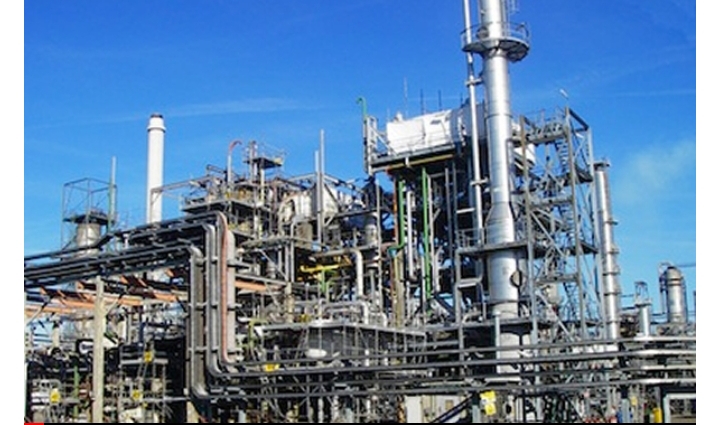
Sources had also told Reuters that the refinery was preparing to deliver its first fuel cargoes to the domestic market within weeks.
The two fuels on offer were typical products of running light sweet crude through a crude distillation unit in a refinery without further upgrading capacity.
The refiner began buying crude in December last year and Nigerian National Petroleum Company Limited has been the main supplier.
Dangote has also purchased some US oil and reportedly received two million barrels of US WTI Midland in early March, according to LSEG and Kpler ship tracking.
news
Real-Time Results: Senate, House Fail to Align on INEC Powers
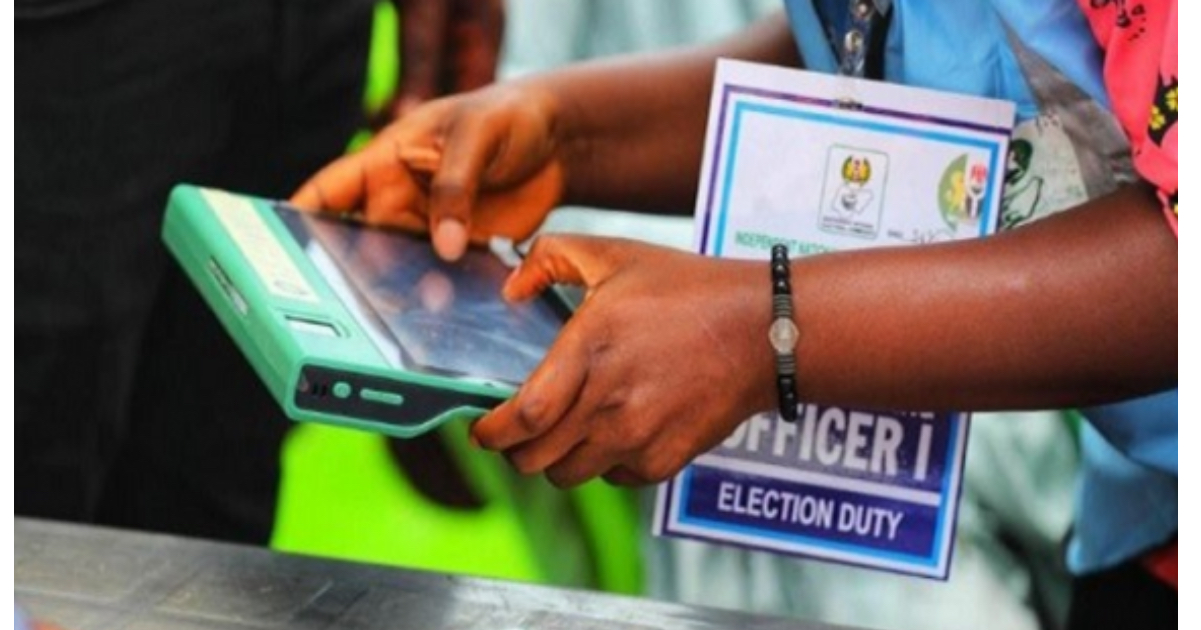
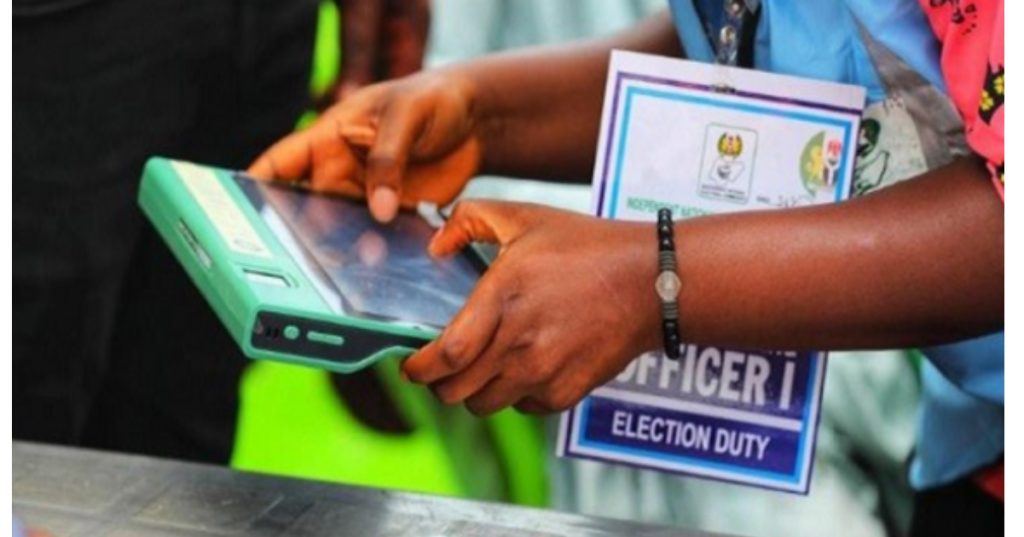
Harmonisation of versions begins •Red Chamber okays e-upload to IREV
The controversy over the passage of the Electoral Act (Amendment) Bill 2026 at the Senate was laid to rest yesterday.
The Red Chamber endorsed electronic transmission of election results, without including the contentious “real-time” provision.
This was shortly before it adopted the Votes and Proceedings of the passage of the Bill, which scaled third reading on February 4, during a rowdy session.
Because the version passed by the Senate did not include “real-time” transmission, unlike the version earlier passed by the House of Representatives, a conference committee of both chambers will harmonise the bills before final approval and eventual presentation for presidential assent.
The amendment of Section 60(3), effected yesterday and passed along with other sections read by Senate President Godswill Akpabio, states: “The Presiding Officer shall electronically transmit the results from each polling unit to the INEC Result Viewing Portal, and such transmission shall be done after the prescribed Form EC8A has been signed and stamped by the Presiding Officer and countersigned by the candidates or polling agents where available at the polling unit.
“But if the electronic transmission of the result fails as a result of communication failure, and it becomes impossible to transmit the result electronically, the signed and stamped Form EC8A by the Presiding Officer, and countersigned by the candidates or polling agents where available, shall in such a case be the primary source of collation and declaration of results.”
This differs slightly from the version passed by the House of Representatives in December, which states: “The Commission shall electronically transmit the results from each polling unit to the IREV portal in real time, and each transmission shall be done simultaneously with the physical collation of results.”
The House also passed Section 60(5), which provides: “The Presiding Officer shall transmit the results, including the number of accredited voters, to the next level of collation.”
The Electoral Act 2022, under which the 2023 elections were conducted and which is in the process of being repealed, states in part under Section 60(5): “The Presiding Officer shall transfer the result, including the total number of accredited voters and the result of the ballot, in a manner as prescribed by the Commission.”
Before senators began proceedings yesterday, protesters, for the second consecutive day, gathered in front of the National Assembly to call for the passage of real-time electronic transmission of election results.
Among the protesters was the former Governor of Rivers State and immediate past Minister of Transportation, Chibuike Amaechi.
The police prevented the protesters from gaining access to the National Assembly complex.
Inside the chamber, the Senate passed the Electoral Act Amendment Bill after a heated debate in a rowdy plenary session.
At the session presided over by Senate President Godswill Akpabio, senators modified their earlier position on real-time electronic transmission of poll results.
They consequently approved a revised clause mandating electronic transmission of results from polling units to the INEC Result Viewing Portal (IREV), with a fallback mechanism in the event of network failure.
In such instances, Form EC8A, on which results are recorded, would serve as the basis for collation.
The amendment, once harmonised with the House of Representatives’ version and signed into law by the President, is expected to legalise the use of IREV in the result transmission process, unlike what obtained during the 2023 elections.
There was palpable tension in the hallowed chamber as the initial proposal to adopt the Votes and Proceedings of the previous sitting led to heated procedural disputes, which were carefully managed by Akpabio.
Outside the National Assembly, protesters continued to agitate for the inclusion of the real-time electronic uploading clause, which had been upheld in the House of Representatives’ version of the bill.
The modification followed the approval of a motion by the Senate Chief Whip, Mohammed Tahir Monguno (Borno North), titled: “Motion for Rescission on Clause 60(3) of the Electoral Act, 2022 (Repeal and Enactment) Bill, 2026.”
Moving the motion, Monguno recalled that the bill had been passed by the Senate on February 4 but said “fresh issues have emerged in respect of Clause 60(3), which require further legislative consideration to ensure the conduct of smooth, transparent and credible elections in Nigeria.”
Invoking Orders 1(b) and 52(6) of the Senate Standing Orders, 2023 (as amended), he urged the chamber to rescind its earlier decision on the clause and recommit it to the Committee of the Whole for reconsideration and passage.
Trouble began when Monguno rose to move the motion while the Senate President was reading out the rules on Votes and Proceedings.
His action triggered confusion, with many senators questioning whether the Senate could revisit a decision already taken within the same legislative session.
Some senators argued that Order 1(b) empowered the Senate to suspend normal procedure.
Following a voice vote, the chamber agreed to allow Monguno to proceed.
Monguno said ambiguity surrounding the earlier amendment, particularly the controversy over the use of the words “transfer” and “transmission” of election results, had generated public concern and required urgent legislative clarification.
He proposed a fresh amendment stipulating that presiding officers at polling units must electronically transmit results to the INEC Result Viewing Portal (IREV) after completing and signing Form EC8A.
He added that where electronic transmission fails due to communication challenges, the signed and stamped Form EC8A would serve as the primary source for collation and declaration of results.
After the motion was seconded by Senator Abba Moro, who described the development as “a victory for democracy,” the chamber descended into disorder when the Senate President declared that the voice vote had carried the amendment.
Several senators protested and invoked Order 72, which allows any senator to challenge the opinion of the presiding officer by calling for a division.
Citing Order 72, Senator Enyinnaya Abaribe demanded individual voting, triggering loud protests, shouts of points of order, and repeated calls to order by Akpabio.
At the height of the confusion, Abaribe withdrew his request for a division, a move that further unsettled the chamber.
Akpabio ruled that Abaribe’s withdrawal stood, thereby upholding the voice vote that carried the amendment.
Following the approval of the revised clause, the Senate adopted the Votes and Proceedings of the previous sitting, bringing the stormy session to a close.
African currency exchange services
To fast-track harmonisation of the Electoral Bill with the House of Representatives’ version, the Senate expanded its conference committee from nine to 12 members to match the number of conferees from the House.
Reps committee
Electoral Reform Bill at harmonisation stage, Reps say
Reps committee summons finance, agriculture ministers, auditor general
The committee is chaired by Senator Simon Bako Lalong, with Mohammed Tahir Monguno, Adamu Aliero, Orji Uzor Kalu, Abba Moro, Asuquo Ekpenyong, Aminu Iyal Abbas, Tokunbo Abiru, Adeniyi Ayodele Adegbonmire, Jibrin Isah (Echocho), Banigo Ipalibo and Onyekachi Nwebonyi as members.
Expressing optimism that the committee would conclude its work swiftly, Akpabio said: “This is a matter of urgency. If you are able to conclude within the next few days or one week, the President should be able to sign this amended Electoral Bill within this month.”
Former Vice President Atiku Abubakar, who spoke in Minna, the capital of Niger State, said electronic transmission of results would restore sanity and avert chaos.
However, he expressed doubts about the ability of the proposed law to guarantee real-time transmission.
Atiku said: “This is below the expectations of Nigerians. During the last elections, Nigerians were expecting real-time electronic transmission of election results at various levels of the election, but what we got was a mixture of electronic and manual uploading, which caused more confusion and chaos.
“It will be best if we have a single-tier electronic transmission, which is real-time electronic transmission, which is the preference of all Nigerians.”
The African Democratic Congress (ADC) stalwart urged opposition political parties to reject the Senate’s decision to allow manual uploading of election results.
He said: “We need all opposition political parties to pursue this issue. We should not allow it to rest the way they wanted it to rest today at the Senate.”
The African Democratic Party (ADP) warned of likely public distrust of the electoral process if electronic transmission is not upheld.
The party’s National Chairman, Yabagi Sani, said in a statement that “while the Senate’s reversal of its earlier rejection of electronic transmission reflects public pressure and democratic expectation, the ADP notes that a reform that does not guarantee mandatory, real-time transmission cannot restore electoral credibility.”
The ADC National Publicity Secretary, Bolaji Abdullahi, described the Senate’s modified position as a victory for the resilience, vigilance and rising political consciousness of Nigerians.
He said in a statement: “It demonstrates, in the clearest possible terms, that when citizens act with unity, clarity of purpose and resolve, they can indeed move mountains.”
The ADC credited Nigerians’ coordinated civic actions, noting: “From the street protests to the digital campaigns, the Nigerian people have once again shown that sovereignty truly belongs to them.”
Hailing the protesters, Abdullahi added: “We salute the courage and tenacity of Nigerians. We commend every citizen who raised a voice, whether online or offline, to resist legislative mischief that threatened to undermine our electoral integrity.”
A former President of the Nigerian Bar Association (NBA), Dr Olisa Agbakoba (SAN), said the adoption of real-time upload of results would engender public trust and close electoral loopholes.
He said the regulatory process must be adequately backed by law.
Agbakoba noted in a statement that the 2023 election exposed a critical gap in the electoral legal framework, recalling that despite INEC’s deployment of the IREV portal for electronic transmission of results, the Supreme Court ruled that the innovation lacked legal force.
The human rights lawyer explained that the IREV portal currently serves only for public viewing and is not admissible as evidence of results in election petitions.
He said: “The message was unmistakable: without explicit statutory provision, electronic transmission remains optional and legally inconsequential, no matter how transparent or efficient it may be.
“This legal gap creates an insurmountable evidentiary burden in election petitions.”
The Tanimu Turaki-led faction of the PDP rejected the Senate’s position on transmission of election results, describing the senators as “clever by half.”
The party’s National Publicity Secretary, Comrade Ini Ememobong, said in a statement that the addendum introduced by the Senate to allow manual transmission was a backdoor attempt to achieve the same objective as the earlier rejection.
The statement reads in part: “We have taken note of the outcome of the Senate’s reconsideration of its earlier position on the real-time electronic transmission of election results, wherein an addendum was introduced to permit manual transmission where technology is said to fail.
“We hold the firm view that this addendum is nothing more than a backdoor attempt to achieve the same objective as the earlier outright rejection, while pretending to align with the wishes of the Nigerian people.
“Manual transmission is already sufficiently provided for under the Electoral Act. The current agitation for electronic transmission is aimed at introducing a second-layer authentication mechanism that prevents the alteration of results en route to collation centres, a malpractice that has historically been the bane of Nigeria’s electoral process.
“Furthermore, it is inconceivable that the same BVAS technology, which successfully undertakes accreditation throughout an election, would suddenly become unreliable for the transmission of results and accreditation data arising from that same exercise.
“This caveat is a clear indication of the humongous fear being harboured by senators opposed to electronic transmission, particularly Senate President Godswill Akpabio, whom we reasonably suspect remains haunted by the ghost of his 2019 election loss, occasioned by the deployment of technology to curb over-voting.
“They must be reminded that Nigeria is bigger than their narrow personal and political interests.
“We therefore urge members of the Conference Committee to adopt the version of the bill passed by the House of Representatives as the harmonised position, if indeed they are committed to delivering credible elections in 2027.
“They must rise above the instincts of politicians fixated on the next election and instead focus on the sustenance of democracy and the protection of future generations.
“Should this democracy fail, the names of Senator Akpabio and all senators who voted against electronic transmission will undoubtedly occupy a conspicuous chapter in the book of infamy.
“We also call on Nigerians to remain resolute in their demand for real-time electronic transmission of election results. This is no time for excuses. This hard-won democracy is far too valuable to be left in the hands of politicians alone.”
news
New Telegraph Award, Dinner Night: Ooni Is Royal Father Of The Day, Osoba Event Chair


The Ooni of Ife, His Imperial Majesty, Oba Adeyeye Enitan Ogunwusi, Ojaja II, has accepted to be the Royal Father of the Day at the New Telegraph Awards Night/ Dinner holding at the Grand Ballroom of the Oriental Hotels, Lagos this Friday.
That is as veteran Elder journalist and former Governor of Ogun State, Aremo Olusegun Osoba, has also accepted to be the Chairman of the event.
The New Telegraph Awards Night/Dinner is a high octane event, where governors, captains of industry, banking and financial institutions and executives as well as public, private sector players and sports personalities would be honoured.
Nine state governors from across the country have confirmed their attendance at the event, with other awardees expressing delight and anticipation towards the event.
In a letter conveying his choice as the Royal Father of the Day, the Management of Daily Telegraph Publishing Company, publishers of the New Telegraph, Saturday and Sunday Telegraph titles informed the paramount ruler and the number one Yoruba king that his choice was borne out of his dedication to excellence and public good in his 10-year reign as the Paramount Ruler of the Yoruba Nation.
“Your Highness, it is important to let you know that you were chosen because of your position as not only the Paramount Ruler of one of the largest and homogenous nations in Nigeria, but also because of your dedication to service, excellence, reward and honesty in your over 10-year reign on the throne of your ancestors.
The letter was delivered to him personally by the Managing Director/Editor-in-Chief of the newspaper, Mr Ayodele Aminu. Similarly, Aremo Osoba, a former Editor-in-Chief of the Daily Times and Grand Patron of the Nigerian Guild of Editors, was chosen because of his close association with his profession, several years after serving as governor.
Osoba is ever present in the activities of journalists and editors, despite being a leading political figure in the country.
According to Aminu, Osoba reflects the dream of not only journalists but every profession because he did not forget his roots and easily identifies with his colleagues, no matter the gap in age and experience.
news
Alleged ₦8.7bn Fraud: Malami, Others Oppose EFCC’s Property Forfeiture Move
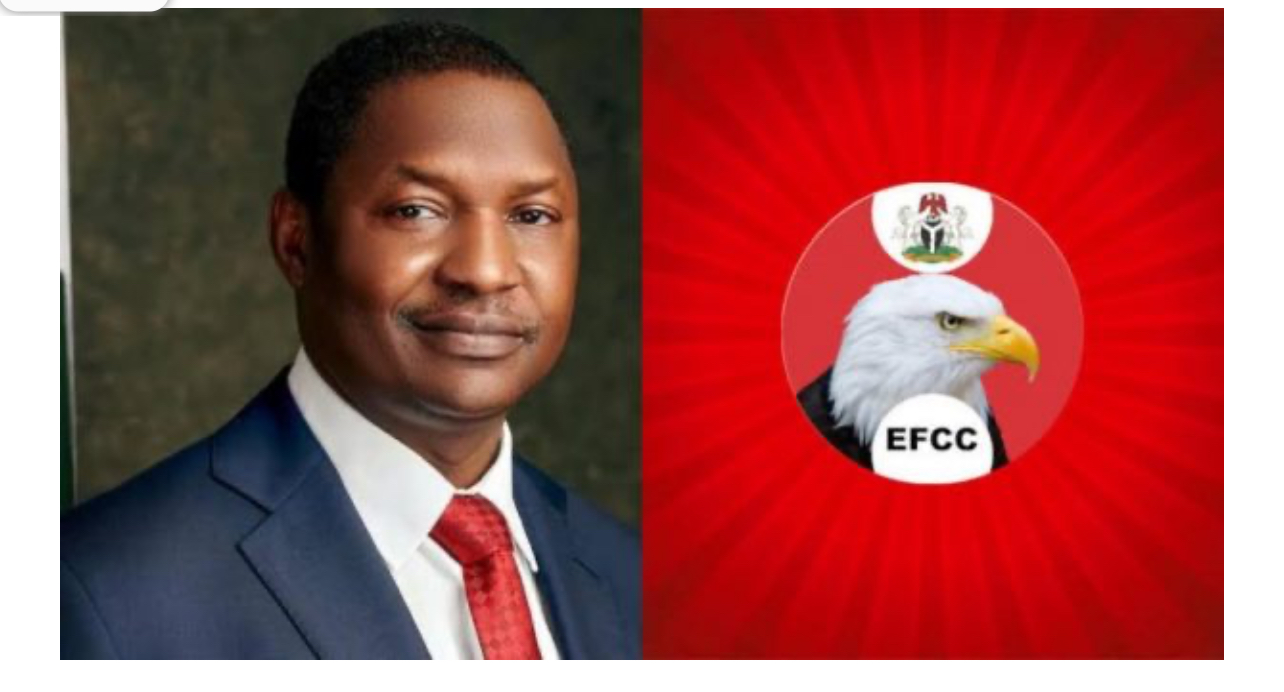
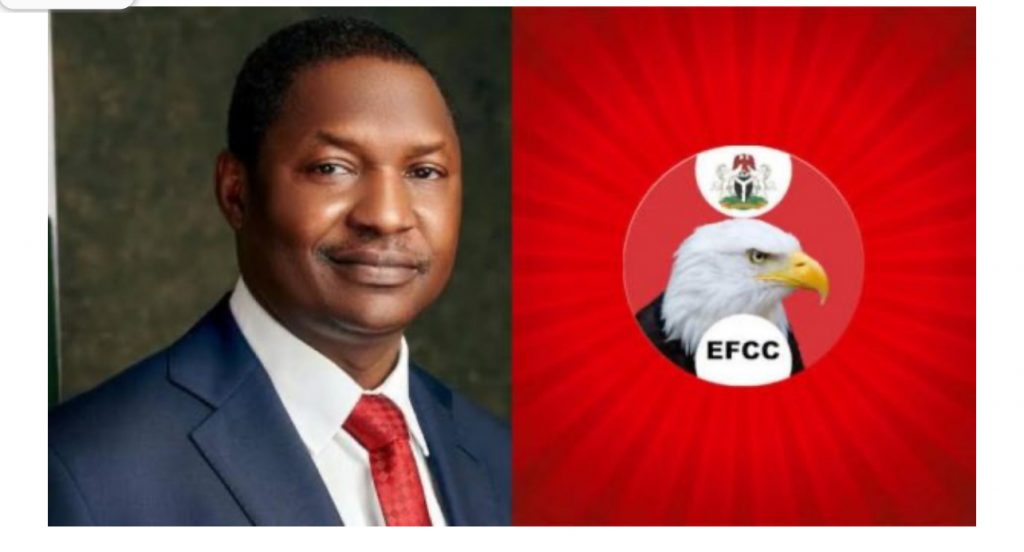
More applicants have approached the Federal High Court in Abuja over some properties linked to former Attorney-General of the Federation (AGF) and Minister of Justice, Abubakar Malami (SAN).
The applicants prayed for the setting aside of the interim forfeiture order made against some of the property linked to the former minister.
They argued that the Economic and Financial Crimes Commission (EFCC) failed to establish any nexus between their property and any unlawful activity, contrary to Section 135 of the Evidence Act and the Advance Fee Fraud.
In their separate motions on notice filed by their lawyers, the applicants – Alhaji Muktaka Usman Junju, and Rayhaan Bustan and Agro Allied Limited – urged the court to vacate and discharge the order made on January 6 by Justice Emeka Nwite.
Junju, a businessman, through his lawyer, Kalu Kalu Agu, prayed the court to set aside the order made on property listed as Number 40 by the EFCC.
Rayhaan Limited, an agricultural food production company, through its lawyer, Joseph Daudu (SAN), also asked the court to remove property listed as numbers one, 28, 29, 30, 31, and 32 from the list of property brought by the anti-graft agency.
The duo, in their applications, also prayed the court for an order directing the immediate restoration of their possession, control, and enjoyment of the listed property from the 57 property sought to be forfeited to the Federal Government.
The News Agency of Nigeria (NAN) recalls that the property listed as number 40 in the EFCC’s schedule is Al-Afiya Energy Tanker Garage, opposite Rayhaan University Health Centre, along Sani Abacha Bypass Road, Birnin-Kebbi, valued at N2,450,000,000.00.
Property Number One is a luxury duplex at Amazon Street, Plot Number 3011 within the Cadastral Zone, A06 Maitama; File Number: An enhancement 11352, which was purchased in December 2022 at N500,000,000.00 (value after enhancement at N5,950,000,000).
Property numbers 28, 29, 30, 31 and 32, which are under Rayhaan Agro Allied Factory in Kebbi, include Factory Buildings, Factory Machines and Plants Units, Factory Mosque, Rayhaan Mill Staff Quarters and Rayhaan Bustan Building, valued at N4,200,000,000.00; N10,500,000, 000.00; N2,450,000,000.00; N1, 487,500,000.00; and N3,150,000, 000.00 respectively.
NAN reports that Justice Nwite had, on Jan. 6, ordered the interim forfeiture of the 57 property suspected to be proceeds of unlawful activities linked to Mr. Malami.
The multi-billion naira landed properties are located in Abuja, Kebbi, Kano and Kaduna States.
The judge granted the order following an ex parte motion moved by the EFCC’s lawyer, Ekele Iheanacho, SAN, to the effect.
Malami was the AGF and Minister of Justice in the Muhammadu Buhari administration.
Nwite, in the ruling, also directed the publication of the interim order of forfeiture in any national daily, inviting any person(s) or body (ies) who might have an interest in the property to show cause, within 14 days of the publication, why a final order of forfeiture to the Federal Government of Nigeria should not be made.
Although the case was formerly before Justice Nwite, the case file had been transferred by the chief judge to Justice Obiora Egwuatu of a sister court for adjudication.
Also in his motion on notice dated January 26, but filed January 28 by Agu, Junju stated that the property listed as Number 40 belonged to him.
According to Junju, the root of title and acquisition history are described in the schedule attached to the affidavit in support of the motion, as Exhibit A.
Nigerian Property Investment
His lawyer argued that the commission had not established that the property was proceeds of an unlawful purpose, which, he argued, robbed the court of jurisdiction.
Agu submitted that the EFCC had failed to comply with the constitutional and statutory dictates of Section 44(2) (b) of the 1999 Constitution (as amended) and Section 17(1) of the Advance Fee Fraud and Other Fraud Related Offences Act 2006, requiring it to disclose specific particulars of the alleged unlawful act committed and the applicable laws.
Besides, he said the court did not conduct a global review of the entire documents and exhibits attached to the commission’s motion ex parte filed on January 6 and granted the same date, “which constitutes an abdication of its judicial duty to properly consider the application to ensure there is a reasonable suspicion that the property was linked to unlawful activities.”
The lawyer argued that Junju duly purchased the land in question “from an original allottee, by name Alhaji Usman Na’Allah Bunza and has no link with Malami, SAN or any Al-Afiya Garage.”
“Respondent (EFCC) is guilty of fraud and non-disclosure of material facts regarding ownership and acquisition of property of the applicant (Junju) forfeited in the interim by the orders of this honourable court.
“The interim forfeiture was procured in violation of Section 5 of the Assets Tracing, Recovery and Management Regulations 2019, having not been initiated through the Office of the Attorney-General of the Federation,” Agu said.
Also in his argument, Daudu, in their motion dated Jan. 19 but filed Jan. 23, said Rayhaan Ltd, by law, is a corporate person and can acquire and own property anywhere in Nigeria.
He described Rayhaan as “a limited liability company, duly registered with the Corporate Affairs Commission (CAC) pursuant to the Companies and Allied Matters Act (CAMA).”
The senior lawyer said properties listed as Nos. 1, 28, 29, 30, 31 and 32 all belonged to the company.
“The applicant’s property Number One was acquired with payments made from Excel Merchants Ltd in favour of the applicant,” he said.
Daudu also said the property numbers 28, 29, 30, 31, and 32 were acquired by the company from banking facilities granted by NEXIM BANK, the Bank of Industry and Access Bank Plc.
“The NEXIM Bank loan has now been called in by reason of the interim order of forfeiture of January 6, 2026.
“Zenith Bank Plc, which had guaranteed the loan, has revoked the guarantee by reason of the interim order of forfeiture of January 6, 2026, and has commenced daily interest charges on the outstanding sum,” Daudu said.
The lawyer argued that the EFCC did not establish that the assets listed as numbers one, 28, 29, 30, 31, and 32, in the interim forfeiture order were proceeds of some unlawful activities, as required under Section 17 (1) of the Advance Fee Fraud Act 2006, and that no predicate offence was linked to the acquisition of the property.
He also argued that the court was not invoked and prompted to conduct a global review of the entire documents and exhibits attached to the motion ex parte, “which constitutes an abdication of its judicial duty to properly consider the application to ensure that there is a reasonable suspicion that they were linked to unlawful action.”
Daudu aligned with Agu that the EFCC “is guilty of fraud and non-disclosure of material facts regarding ownership and acquisition of properties of the applicant forfeited by the orders” of the court.
He submitted that the proceedings of January 6 amounted to unlawful deprivation of property, denial of fair hearing and abuse of court process, urging the court to set the same aside.
Malami had, equally, filed a motion, praying the court to vacate the interim order of forfeiture against his property.
Also, Justice Egwuatu has fixed February 12 for the hearing of the matter.
-

 news5 years ago
news5 years agoUPDATE: #ENDSARS: CCTV footage of Lekki shootings intact – Says Sanwo – Olu
-

 lifestyle6 years ago
lifestyle6 years agoFormer Miss World: Mixed reactions trail Agbani Darego’s looks
-

 health5 years ago
health5 years agoChairman Agege LG, Ganiyu Egunjobi Receives Covid-19 Vaccines
-

 lifestyle4 years ago
lifestyle4 years agoObateru: Celebrating a Quintessential PR Man at 60
-

 health6 years ago
health6 years agoUPDATE : Nigeria Records 790 new cases of COVID-19
-

 health6 years ago
health6 years agoBREAKING: Nigeria confirms 663 new cases of COVID-19
-

 entertainment1 year ago
entertainment1 year agoAshny Set for Valentine Special and new Album ‘ Femme Fatale’
-

 news9 months ago
news9 months agoBREAKING: Tinubu swears in new NNPCL Board


